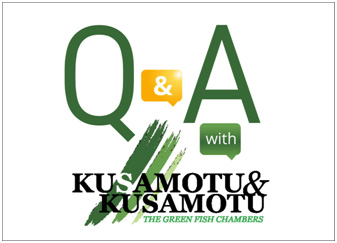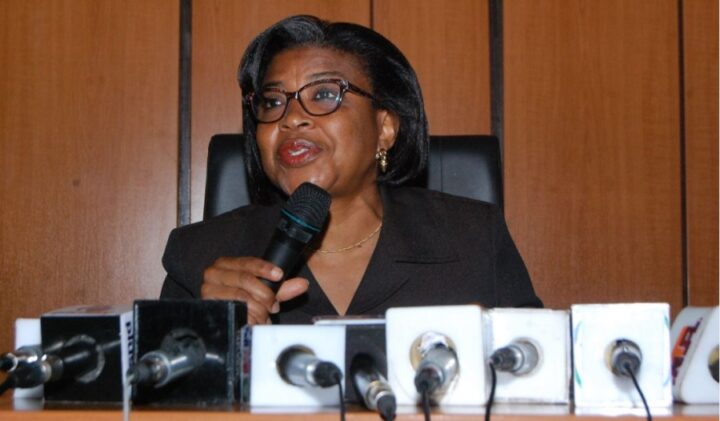In July 2016, the Nigerian Government, through President Muhammadu Buhari established the Presidential Enabling Business Environment Council (PEBEC) whose main responsibility is to remove bureaucratic constraints to doing business in Nigeria and make Nigeria a progressively easier place to start and grow a business. The development was necessary so as to project the Nigerian business climate on the doing business project of the World Bank Group which encourages economies to compete towards more efficient regulation whilst offering measurable benchmarks for reform, and also serve as a resource base for potential investors interested in the business climate of each economy.
Before now, the Companies and Allied Matters Act had been regulating businesses in Nigeria for 30 years without any reforms in spite of the changing business environment which had rendered some of the provisions of law obsolete and stifled ease of doing business. On 7th of August 2020, President Muhammadu Buhari assented to the Companies and Allied Maters Act, 2020 (CAMA 2020), after years of preparation and deliberations by the National Assembly. The Act repeals and substitutes the Companies and Allied Matters Act, 1990 (Repealed Act).
WHAT ARE THE KEY PROVISIONS OF THE CAMA 2020?
The key provisions of CAMA 2020 include the following:
Advertisement
Establishment of a Governing Board of the Corporate Affairs Commission (CAC): Section 2, CAMA 2020 establishes the Governing Board which shall now include one representative of the Institute of Chartered Secretaries & Administrators of Nigeria (ICSAN), as well as a representative from the Nigerian Association of Small and Medium Enterprises. The intention of this provision is to create an accommodating Board for input from Micro, Small, and Medium Enterprises (MSMEs) as well as a more inclusive board with participation from company secretaries who deal with the commission regularly in the discharge of their professional duties.
Pre-action Notice and Restriction on Levy if execution – Section 17, CAMA 2020 now provides that a legal action cannot be commenced against CAC until the expiration of 30 days after a written notice of intention to commence legal action is served on the Commission by the intending Plaintiff or his agent.
Introduction of single member (shareholder) Companies–CAMA 2020 in its S.18 (2) now makes it possible to create a private company with only one (1) member or shareholder.
Advertisement
Replacement of Authorized Share Capital with Minimum Issued Share Capital – The doctrine of authorised share capital has now been replaced in S.27 of the Act with the concept of “minimum issued share capital”. For a private Company, the minimum issued share capital shall not be less than N100, 000, while the minimum issued share capital for a public company shall not less than N2,000,000.
Pre-emptive Rights of Shareholders – Section 22 (2) of CAMA 2020 provides for a statutory right of first offer subject to the provisions of the articles of association of a company.by this provision, a member of a private company cannot sell its shares in the company to a non-member without first offering those shares to existing members. In addition to this, a company cannot, without the approval of all its shareholders, sell assets having a value of more than 50% of the total assets of the company. Also, a shareholder or a group of shareholders, acting in concert, cannot agree to sell more than 50% of the shares of the company to a non-member except such non-member has agreed to buy the shares of the other existing shareholders on the same terms.
Alternative to AG’s Consent – In the old Act, Companies limited by guarantee were not required to have a share capital but this provision is not in CAMA 2020 (section 26). The intent for the omission is not clear and the Commission may need to clarify whether companies limited by guarantee are now to be registered with share capital, or with the applicable minimum issued share capital as introduced under the new Act.
More importantly, Section 26 (7) of CAMA 2020 retains the provision that the Consent of the Attorney General of the Federation remains a requirement for the grant of registration of a company limited by guarantee, but where the AG does not grant consent within 30 days from the receipt of all relevant information, the promoters of the Company are allowed to advertise in three (3) national dailies and invite objections within twenty-eight (28) days. Where there are no objections, CAMA 2020 empowers the Commission to approve the application and register the company without the AG’s Consent.
Advertisement
Statement of Compliance–the statement of compliance had hitherto been required to be signed by a Legal Practitioner. However, the new Act in its S.40 (1) now states that the statement of compliance which is required to confirm compliance with the requirements of company registration, can now be signed by an applicant or his agent. The requirement that Declaration of Compliance must be signed by a lawyer or attested to before a notary public is now optional.
Use of Common Seal no longer Mandatory–By virtue of S.98 of the new CAMA, the use of common seal is now optional. Where a company choose to have a common seal, its use to be regulated by the Articles of Association.
Share certificate – Owing to the provision in Section 98 of CAMA 2020 which makes the use of common seal voluntary, CAMA 2020 now provides that a share certificate may either be (a) issued under the company’s seal (where the company has a common seal or (b) signed as a deed by the company.
Authentication of Documents – By virtue of section 101 of CAMA 2020, an electronic signature is deemed to satisfy the requirement for signing. This is in tandem with today’s technological advancement. In addition to this, a document or proceeding requiring authentication by a company may be signed by a Director, Secretary, or other authorised officer of the Company, and need not be signed as a deed unless otherwise specifically required by the Act.
Advertisement
Disclosure of persons with significant control – Under the Repealed Act, disclosure of beneficial interest was only applicable to a public company, but the new CAMA does not differentiate disclosure required by a public company and a private company. Sections 119 and 120 of CAMA 2020, provide that every person who hold significant control in a company are required to inform the Company about the details of such control within seven days of acquiring such significant control. The Company in turn must inform CAC within one month of receipt of the disclosure and to also include the information in their annual returns to the CAC. In addition to this, the Company is also required to update its register of members to reflect the disclosure.
Validation of Improperly Issued Shares – Under the Repealed Act, the Court was the only avenue to validate the issuance/allotment of improperly issued shares (Section 123 of the Repealed Act). However, Section 148 of CAMA 2020 now authorises the company itself to validate the issuance/allotment of such shares within 30 days of an application made by a holder of those shares or by a creditor of the Company. The Company may validate the issue/allotment by way of a special resolution. Furthermore, the Court may also validate such shares where the company refuses to do same, and upon application to it by the affected party.
Advertisement
Authority to Allot Shares – As under the Repealed Act, the power to allot shares remains vested in the company, whether private or public. However, by Section 149 of CAMA 2020, the power to allot shares of a company by the Directors can only be exercised where the Board has been given express authority either by the shareholders at a general meeting of the company or by the articles of association.
Disqualification for Appointment as Trustee of Debenture Trust Deeds –Under the repealed Act at section 187(1) f, a substantial shareholder of a company was disqualified from acting as trustee of a debenture trust deed, but this is not so under the new Act, as the section 212 of CAMA 2020 omits a substantial shareholder among the categories of people disqualified from acting as trustees of a debenture trust deed. Therefore, it appears that substantial shareholders are no longer restricted from acting as trustees in a debenture trust deed to which the company is a party.
Advertisement
Registration of Charges created by Companies – Section 222 (12) of CAMA 2020 provides that the total fees payable to the Commission in connection with the filing, registration or release of a charge shall not exceed 0.35% of the value of the charge or such other amount as the Minister may specify. The provision introduces a substantial reduction in the fees payable for the registration of charges as same hitherto costs N10, 000 for every N1, 000,000 or part thereof for private companies and N20,000 for every N1,000,000 or part thereof for public companies.
Floating Charges – Section 204 of CAMA 2020 which was section 179 under the repealed act included the fact a person is deemed to have notice of a prohibition in a floating charge where a notice indicating its existence is registered with the Commission. The commission now has an obligation to enter in the register of charges, a notice of the prohibition in a floating charge. In addition to this, section 207(4) of CAMA 2020 provides that, notwithstanding any provision in the CAMA 2020 or any other law to the contrary, the holder of a fixed charge has priority over other debts of the company including preferential debts.
Advertisement
Businesses to be transacted at Annual General Meetings (AGMs) – By virtue of Section 238 of CAMA 2020, disclosure of remuneration of managers of a company has been included as part of the ordinary business to be discussed at an AGM. Furthermore, Section 257 of CAMA 2020 stipulates a similar provision that the compensation of managers of a company shall be disclosed to members of the company at the AGM. Nevertheless, Section 242 of CAMA 2020 under contents of a notice seems to have omitted the new ordinary business stated in section 238.
Persons entitled to receive Notice of a General Meeting of Public Companies – Section 243 of CAMA 2020 includes the CAC as a party entitled to receive notice of general meetings of public companies. Before now, this requirement only applied to incorporated trustees.
Powers and Duties of the Chairman – Section 265 (6) of CAMA 2020 restricts Companies from appointing a Director to hold the office of the Chairman and Chief Executive Officer of a private company. This means that the same person cannot hold the same position of CEO and Chairman of a public Company. The separation of these two (2) roles is consistent with international best practices as well as the Nigerian Code of Corporate Governance, 2018 (NCCG).
Independent Directors in Public Companies – Section 275 of CAMA 2020 mandates every public company to have at least three independent Directors. This provision is in line with the Securities and Exchange Commission Code of Corporate Governance (for public companies) and the NCCG which provides that companies should have a minimum of one independent director. Although the requirement of CAMA 2020 in this regard is greater.
Duty of Directors to disclose age and multiple directorship – Section 278 of CAMA 2020 provides for the disclosure of multiple directorships held by any person to be appointed as a Director of a public company. In addition to this, Section 307 (3), states that a person shall not be a director in more than five public companies. This provision aligns with NCCG 2018. The purpose is to ensure that a Director is not over-burdened by multiple responsibilities which may affect the performance of his functions. The Director in the instance also has the responsibility to inform the company of any likely conflict of interest that may arise as a result of his multiple directorships.
Introduction of electronic filing, electronic share transfer and virtual meetings for private companies – Section 860 (1) of CAMA 2020 makes provision for electronic filing of documents for registration at the CAC and section 175 also introduces electronic share transfer while section 240 provides for virtual meetings for private companies only. Furthermore, S.861 of CAMA 2020 provides that certified true copies of electronically filed documents are admissible in evidence, with equal validity as the original documents.
Introduction of Virtual Annual General Meetings – CAMA 2020 has also made provisions to cater to the new realities of doing business particularly during unprecedented times such as the current outbreak of Covid 19. Thus the Law provides for remote or virtual general meetings, subject to the provisions of the Articles of Association of the company (S. 240 (2)). This means that every member can participate at such meetings irrespective of their various locations. Although the practice of virtual meetings is not alien in business operations but such meetings were usually used as an informal arrangement or for Board meetings. With this new provision, private companies can hold their general meetings remotely or virtually with the backing of the law. However, this provision does not apply to public companies. Consequently, public companies are still required to hold general meetings physically.
Exemption from appointing Auditors – Small companies or any company having a single shareholder are exempted from the appointment of auditors at their annual general meetings. S. 402 of the new CAMA exempts such companies from audit requirements.
Exemption from the appointment of company secretary – The appointment of a Company Secretary is now optional for private companies. By virtue of S. 330 (1) of the new CAMA, the appointment of a company secretary is not mandatory for small companies.
Establishment of Limited Liability Partnerships (LLP)– CAMA 2020 introduces a new legal entity known as Limited Liability Partnership (LLP) in section 746. Under the repealed Act, Partnerships were registered under Part B which meant that such companies were not bodies corporate with separate legal entity. A limited liability partnership combines the features of a corporate structure such as limited liability companies with those of a partnership. In an LLP, the partners have a form of limited liability similar to that of the shareholders of a corporation and one partner is not responsible or liable for another partner’s misconduct or negligence.
Moratorium on Creditors voluntary winding up in a scheme of arrangement – Section 717 of CAMA 2020 provides that no winding up petition or enforcement action by a creditor (whether secured or unsecured) shall be entertained against any company or its assets that has commenced a process of arrangement and compromise with its creditors for six months, from the time that the following documents are provided to the court;
- A document setting out the terms intended to be proposed to the Creditors in an arrangement or compromise.
- Statement of affairs of the company containing particulars of the company’s creditors, its debts, and other liabilities as well as assets.
- A statement that the Company desires protection from a winding up process pending the completion of the arrangement or compromise, or any other document as may be required by the Court.
However, a secured creditor may, by application to the court, filed within 30 days of notice of the arrangement and compromise, discharge the six months moratorium period if;
- The asset sought by the Creditor does not form part of the pool of assets to be considered under the arrangement and compromise proceeding
- The assets sought by the Creditor is a perishable goods or commodities which may depreciate or dissipate before expiration of the 6 months moratorium period.
- The secured creditor enforces its security over the company’s assets before receiving a notice of the company’s arrangement and compromise.
- The company consents in writing for a secured creditor to enforce its right over the company’s assets within the 6 months moratorium.
Insolvency Framework – CAMA 2020 introduces a rescue policy and insolvency framework, purpose of which is to rescue companies from absolute demise. The provisions include the appointment of an administrator, mitigating credit risks, and debt settlement arrangements. Section 434 provides that Directors of a Company may make proposal to its Creditors for a composition in satisfaction of its debts. In addition to this, Section 443 provides for appointment of an administrator as opposed to a receiver, whose objective is to rescue the Company from liquidation and ensure that it remains a going concern. Netting provisions were also provided in sections 718 to 721 to allow companies settle multiple payment obligations under a netting agreement. The Act further provides that the provisions of a netting agreement are enforceable in accordance with their terms, including against an insolvent party, and, where applicable, against a guarantor or other person providing security for a party and shall not be stayed, avoided or otherwise limited by:
- the action of a liquidator;
- any other provision of law relating to bankruptcy, reorganisation, composition with creditors, receivership or any other insolvency proceeding an insolvent party may be subject to; or
- Any other provision of law that may be applicable to an insolvent party, subject to the conditions contained in the applicable netting agreement.
Provisions applicable to scheme or contract involving transfer of shares in a company – Section 712 of CAMA 2020 ( absent in the repealed Act) provides that where a scheme or contract, not being a take-over bid under the Investment and Securities Act involving the transfer of shares or any class of shares in a company to another company, has, within 4 months after the making of the offer in that behalf by the transferee company, been approved by the holders of at least nine-tenth in value of the shares of the company (other than shares already held at the date of the offer by a nominee for the transferee company, or its subsidiary), the transferee company may at any time within two months after the expiration of the said four months give notice in the prescribed manner to any dissenting shareholder that it desires to acquire its shares.
Avoidance or Attachments – Section 577 of CAMA 2020 which replaces section 414 of the repealed Act, now includes a proviso to the effect that where a company is being wound up, only a fixed charge holder or any other validly created and perfected security interest other than a floating charge holder, will be able to enforce security, sequestrate, attach or levy execution on the assets of the company.
Preferential Payments – Section 657 of CAMA 2020 stipulates that where a company is being wound up, priority must now be given to deductions made from the remuneration of employees and contributions of the company under the Pension Reform Act, and contributions and obligations of the company under the Employees’ Compensation Act. Furthermore, a company’s debts shall rank equally among themselves after the expenses of the winding up have been settled and the debts shall be paid in full, unless the assets are insufficient to meet them, in which case they shall abate in equal proportions.
Fraudulent Preference – Section 658 of CAMA 2020 provides that where a company at any relevant time within the time of presentation of a petition for winding up in the case of a winding up subject to the supervision of the Court or, the passing of a resolution for winding up in the case of a voluntary winding up, or the period of three months ending with the onset of insolvency does anything or procures anything to be done which has the effect of giving a person, such as one of the company’s creditors or a surety or guarantor undue advantage shall be deemed a preference of that person, and be invalid accordingly.
Supplies of gas, water, electricity, etc. – Section 665 of CAMA 2020 is in relation to companies involved in the supply of gas, water, electricity and communications. The section is to the effect that where such companies are requested to supply gas, electricity, water or communication services to a company undergoing liquidation, the supplier may request the Liquidator or Administrator of the Company for a payment guarantee for the supply. However, the condition can only be made in respect of charges which arose on the date on which the liquidation took effect and not for outstanding payments prior to liquidation.
Classification of NGOs, Associations, and Foundations – Section 824, CAMA 2020 now has a provision which empowers the CAC to determine the classification of Associations according to their aims and objectives.
Related Associations – CAMA 2020 empowers the CAC in section 831 to unilaterally merge two or more associations together whether for having same trustees or similar aims and objectives.
Suspension of Trustees and Appointment of Interim Managers – The CAC may by order suspend the trustees of an NGO, Association, or Foundation and appoint an interim manager to manage the affairs of the association where it reasonably believes that the affairs of the association are being run fraudulently, or where it believes that there is/has been a misconduct or mismanagement in the administration of the association, or where it is necessary or desirable for the purpose of protecting the property of the organisation. The section (839) further provides that the trustees shall be suspended by an order of court upon the petition of the CAC or members consisting one-fifth of the association.
Accounts of Dissolved Incorporated Trustees i.e. NGOs, Associations and Foundations –CAMA 2020 also gives CAC the power to deal with the bank accounts of NGOs, Associations and Foundations, where such account is dormant. Section 842 directs banks to notify the CAC of such dormant account irrespective of any duty of restriction on disclosure of information of the Bank. Furthermore, the Act provides that where the Commission receives a notice from the Bank, it may request the association to provide evidence of its activities and if the association fails to respond satisfactorily within 15 days, the Commission may dissolve the association and direct the bank to transfer the amount standing to the credit of the relevant association to such other association as may be specified by the Commission. For this purpose, an account is dormant if no transaction other than a transaction consisting of a payment into the account or a transaction initiated by the bank for a period of five years immediately preceding the date a report is made to CAC concerning the account.
Bi-annual Statement of Affairs – Trustees of an Association are required by CAMA 2020 to submit bi-annual statement of Affairs of the Association to CAC subject to the regulations of CAC. Failure to comply, and each trustee will be liable in a penalty for every day during which the default continues in such amount as may be specified by CAC. (Section 845). In addition to this, section 846 stipulates that trustees are to ensure that accounting records disclosing the financial position, as well as details of money received and expended by the association including statement of assets and liabilities are kept. The CAC is further empowered to determine the financial year of an Association.
Merger of NGOs, Associations, and Foundations – Section 849 of the new Act provides that two or more associations with similar aims and objectives may merge under terms and conditions that may be prescribed by CAC.
Establishment of Administrative Proceedings Committee – Section 851 of CAMA 2020 mandates CAC to establish an Administrative Proceedings Committee to be chaired by the Registrar General. The objectives of the Committee are to resolve disputes or grievances arising from the operation of the Act or its regulations, and to provide an opportunity of being heard for persons alleged to have contravened the provisions of the Act or its regulations and lastly to impose administrative penalties for contravention of the provisions of the Act or its regulations in the settlement of matters before it. Sanctions that may be imposed by the Administration Committee include penalties, suspension or revocation of registration, or recommendation for criminal prosecution. Furthermore, parties dissatisfied with the decisions of the Committee may appeal to the Federal High Court.
WHAT ARE THE BENEFITS OF CAMA 2020?
It is no longer news that the repealed Act was overdue for a change after 3 decades of provisions which became obsolete due to the dynamic nature of doing business globally. The new Act is expected to bring succour to businesses and promote ease of doing business. Some of the apparent benefits of CAMA 2020 are:
Watered down regulations for Micro, Small and Medium Enterprises: The new Act seems to ease some of the hitherto regulatory requirements for small businesses. This is expected to increase the activities of MSMEs thereby growing the economy in the process. More so, the reduction of reporting obligations of small companies, such as exemption from yearly audit process will reduce cost so that more funds can be ploughed back into the business for expansion.
Reduction in time and cost of setting up a Company: The new Act makes it easy for small businesses operating within the informal sector to be able to incorporate their businesses by registering at the Corporate Affairs Commission without the aid of a Lawyer. This has the potential of widening the tax base of the country thereby increasing revenue earned from taxation of corporate entities, and diversifying the economy.
Promotion of Financial Stability: The introduction of model netting provisions in the Act as a means of mitigating credit risks promotes financial stability and investor confidence in Nigeria.
Increasing Investor Confidence in the Nigerian Financial Sector as well as all sectors of the economy: Investor confidence in the Nigerian financial sector and indeed, all sectors of the economy is expected to significantly improve, due to a competitive and business-friendly environment where companies are regulated in line with global best practices.
Ease of Doing Business – CAMA 2020 mostly manifests the objective of the Nigerian government to simplify business operations and ensure overall progression in the Nigerian business environment. The friendly provisions towards small businesses will encourage more commercial activities which will attract potential investors and develop the economy. It is expected that the new Act will usher in a new business regime for overall economic development in line with international best practices.
ARE THERE ANY DOWNSIDES CONTEMPLATED UNDER CAMA 2020?
As with any other regulation, CAMA 2020 has certain grey areas as well as drawbacks which professionals may grapple with. Some of the identified disadvantages are:
Blanket Authority of the CAC – in the new Act, the CAC is now empowered to impose penalties according to their discretion. Prior to CAMA 2020, the amount of penalties were expressly stated, for example, officers of Companies were either liable to pay 50 naira for every day a default persists or a fixed fee, but the new CAMA mostly leaves amount of penalty at the pleasure of CAC. The effect of this is that the Commission may assess fees as it think fit regardless of the gravity of non-compliance. It is therefore important for Companies to observe strict compliance with the provisions of the Act so as to avoid heavy fines that may accrue as a result of non-compliance.
Informality of Small Companies and MSMEs – The Act seems to tilt more in favour of small companies as they are exempted from regulatory bottlenecks and corporate governance standards. Although this may be considered a benefit as the objective is to reduce operational cost, however, companies whether small or large require certain level of legal and regulatory decorum for optimal growth and profitability. Such Companies are therefore advised to engage the services of professionals to advise and manage their affairs.
Steep Regulations for NGOs, Associations, and Foundations – Part F of CAMA 2020 empowers the CAC to fire trustees and employ managers to replace them. In addition to this, the Commission may, with the assistance of the Banks, freeze the bank accounts of any association whose account is dormant. It is thus contemplated that the requirements of CAMA 2020 concerning NGOs may stifle the affairs of Associations and lead to dissolution of many of them.Furthermore, many may be discouraged from incorporating their associations due to the strict requirements now involved in running the affairs of an association. Currently the CAC has implemented its guideline to obtain consent of the Registrar General before registering an NGO or Association although this requirement is ostensibly absent in CAMA 2020 but now in motion at the commission at an extra cost.
Likelihood of Bias –The Administrative Proceedings Committee introduced by CAMA 2020 and to be presided over by the Registrar General negates the principle of natural justice. It is a known principle of law that no person can judge a case where they have an interest. The Chairman of the Administrative Committee should be an independent person with the full knowledge and experience in company law as opposed to the Registrar General. Although there is a provision for appeal from the decision of the Committee, it is equally imperative to ensure that the proceedings of the Committee are free from any form of bias.
Got more questions on the above subject matter? Send your enquiries to:
Mr. Ayodele Kusamotu: [email protected]
Abimbola Abegunde: [email protected]
Kusamotu & Kusamotu
(The Greenfish Chambers)
2A, Udi Street, Osborne Foreshore Estate,
Ikoyi, Lagos State.
Email: [email protected]
Website: www.kusamotu.com
Tel: +234 (0) 8147203068
Disclaimer: Nothing in this Article should be construed as legal advice from any of our lawyers or the firm. The answers are a general summary of developments, principles, circulars and press releases of interest on the subject of discussion and may not apply directly to any specific circumstances. Professional advice should therefore be sought before any action is taken.






